Fifa election: Football governing body still has much to prove
- Published
Who will replace Sepp Blatter at Fifa?
So far, so good.
When the Fifa family last assembled here in Zurich, by this stage of the proceedings, the sport had been plunged into chaos, Swiss police swooping on senior officials only two days before the 2015 presidential election.
This time, despite fears of similar sensational scenes, the eve of another Fifa congress has been reached with no new wave of arrests. Not yet, anyway.
Make no mistake, the circus is in full swing. The regular sight of presidential candidates and their vast entourages of highly paid lobbyists, advisers, and various hangers-on battling their way through crowds of the world's media in the lobbies of luxury hotels, can make for a faintly absurd spectacle at times, far removed from the actual sport these people claim to represent.
Few fans or players would recognise these individuals, let alone know about their policies or have trust in their leadership. This week's opening of a £100m Fifa museum that conveniently manages to ignore one of sport's biggest scandals, and an unseemly row over the use of transparent voting booths, has only added to the sense of farce.
All it needs now is for Sepp Blatter himself to show up and demand entry to Friday's proceedings.
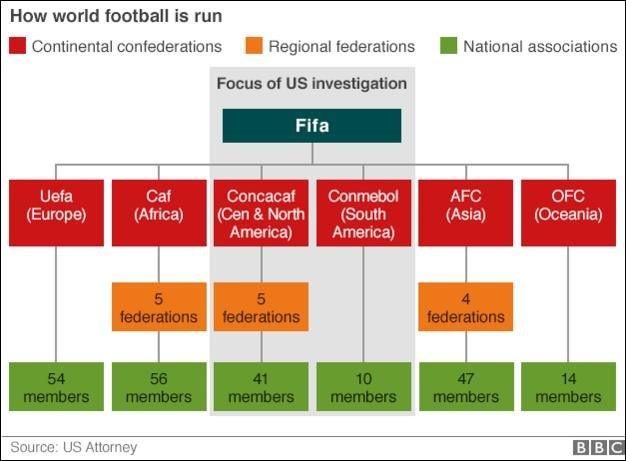
But having converged on the city once again, without any more dawn raids disturbing their sleep and no sign of Blatter, football's global rulers may now believe that this week can actually prove a turning point for the sport after a time of unprecedented crisis.
Many observers will have been dismayed that Blatter's ban has been reduced from eight to six years by Fifa's appeals committee, but the selection of his successor should be the moment the governing body finally consigns the tainted tenure of its former president to history, and symbolically moves on from the stranglehold he held over the organisation for so long.
Except to many, it simply does not feel like that.
All of the men running for president are members of the football establishment. Four of them have spoken to Blatter in the build-up to the election, presumably to ask for advice. All are loath to condemn the disgraced former president.
More on the Fifa election |
|---|
Despite repeated attempts, there was never a public discussion between the candidates in the build-up to this week.
Only one - Jerome Champagne - turned up to a planned televised debate at the European Parliament. According to Amnesty International, not one of them has signed up to a full range of pledges designed to prevent human rights abuses and corruption.
And to those who desperately wanted a candidate known for reformist principles, none of them appear suitable at a time when the organisation needs to be seen to truly change.
With its reputation at rock-bottom, many would have assumed Fifa would recognise the need for a new leader with a reputation beyond reproach.
The Fifa corruption crisis explained
Instead, the man most likely to take over, Bahraini royal Sheikh Salman bin Ebrahim al-Khalifa, has repeatedly been forced to deny allegations he was complicit in human rights abuses against Bahraini footballers in 2011, calling them "nasty lies" - although he does not dispute that players were punished as part of a crackdown led by members of his family, all while he was head of the country's Football Association.
Inevitably, many ask whether at the very least, he should have done more to help protect these victims, and been as willing to front-up and discuss the controversy as his lawyers have been to issue legal threats to those who write about it.
This week he was forced into fresh denials over his role in an alleged cash-for-votes scandal after Fifa critic Damian Collins MP suggested Salman may have used development funds to help pay for an election campaign, external in 2009, and that the Olympic Council of Asia may have offered inducements to vote for him in another election four years later.
Those close to Salman insist that he was neither aware or guilty of any wrongdoing, that he has been unfairly portrayed and point to his proposals; to take no salary if elected, to reduce the influence of the president by ruling in a more hands-off manner and urging financial prudence at a time when rivals are trying to win votes by promising to splash the cash.
But while none of these claims against him have been proven, what is certain is that last year Salman strongly backed Blatter - rather than Jordan's Prince Ali bin al-Hussein - despite the challenger being a member of his own Asian Football Confederation.
Salman recently suggested it may be better if the other candidates just dropped out and let him stand unopposed. After 17 years of Blatter rule, that did nothing to reassure those who see the Bahraini as the last thing that Fifa needs right now.
Gianni Infantino says now or never to reform Fifa
But the concerns extend beyond the favourite.
The other front runner, Gianni Infantino, has admitted regular discussions with another banned executive, his former boss and suspended Uefa chief Michel Platini, while his pledge to significantly increase financial handouts to federations and increasing World Cup slots looks to some like a traditional Fifa tactic of buying popularity.
Champagne worked closely with Blatter during his 11 years at Fifa, while rank outsider Tokyo Sexwale has said he feels sorry for his friend Blatter. Even Prince Ali - regarded as the most credible reformist among the candidates having challenged Blatter last year - spent time as a member of Fifa's discredited executive committee.
And yet the sense here is that Fifa's future hinges less on the presidential election, and much more on a vote that precedes it - to decide whether a raft of critical governance reforms is approved.
The fear is that if these proposals are rejected, Fifa could lose its current victim status in the US corruption investigation, be declared a criminal organisation, and risk being dissolved.
On paper, the suggested changes have merit, although arguably constitute the minimum requirement with the organisation in such disrepute:
separation of powers between the political and business operations of Fifa to avoid conflicts of interest;
an independent audit and compliance committee;
more women on a new, larger Council that would replace the infamous Exco;
a downgraded, more ceremonial president;
eligibility checks;
independent members on the finance and development committees;
greater representation of the sport's stakeholders;
term limits and the publication of executive salaries;
a commitment that in turn, the confederations - and all 209 member associations - will adopt these governance practises themselves.
Fifa says that this all proves it has listened and is changing.
As he toured Zurich's finest hotels on Thursday, urging each confederation to support the "far-reaching and comprehensive" reforms, Fifa's acting president Issa Hayatou insisted that doing so would "send a strong message that we have listened and that we are taking the action necessary to give football the foundation needed for the future".
But even if the reforms are approved - as expected - the critics are far from satisfied. Many wanted Fifa to change its rules to allow a credible figure from outside the sport to stand for president, to have non-executive directors on its council and to allow a fully independent, external commission to oversee the reforms (something only Prince Ali has signed up to).
"The proposed statute amendments do not have enough detail to determine whether or not they can deliver an accountable governing body to stop corruption and win back trust" says Gareth Sweeney of anti-corruption group Transparency International.
How to change the Fifa 'mafia'
"How Fifa defines 'independent' and how it picks these outsiders is key. There is no mention of publishing the criteria for the choices - or any integrity checks that they have to go through. This is a mistake.
"Quite simply it needs external advice and independent oversight to get the details right. Unless Fifa picks an advisory body with internationally renowned people with the power to intervene, the whole reform process could fail.
"Fifa needs to publish not only salaries, but also a list of interests and assets so people can see that those who work in football do not enrich themselves illegally."
With Salman brazenly admitting he would effectively get round a proposal to cut costs by reducing the number of standing committees from 26 to nine by simply creating some new commissions, some will wonder whether Fifa really has the appetite for change.
"I don't see much hope", says Jeff Thinnes, an anti-corruption, ethics and compliance consultant to major corporations trying to recover from their own scandals.
"The election is just reshuffling the deck. The house is polluted, and if you live in the house long enough you breathe the air. No one knows what deals have been made, already there's rumours of votes bring bought and offers being made."
"The presidency should be a minor matter compared to the reforms. They look good but can they actually be implemented? It will take time, and everyone is tired of waiting for Fifa to come along. It is notorious for dragging its feet, and I see no reason that will cease. The role of Fifa's sponsors will be critical."
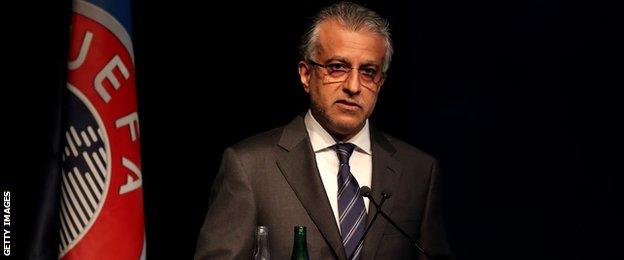
Sheikh Salman denies allegations made against him that he was complicit in human rights abuse
Terry Cecil, head of the International Sponsor Council, a trade association for corporate sponsors is similarly dismayed. "It's depressing. Not enough has been done to change the potential course of corruption at Fifa. There's always a way of circumventing the reforms.
"It's really now time to open things up, let outside forces come in. We want to work with whoever is elected to see how we can help change things, but we still see a reticence to that. You still have largely the same people in place other than the top two people."
With criminal investigations into decades of wrongdoing in both the US and Switzerland ongoing and the full extent of the corruption yet to be determined, no wonder some believe that Fifa lost the right to reform itself long ago - and that it is simply not ready to be holding another election.
Here in the Zurich bubble, it is tempting at times to be drawn into the frenzied intrigue surrounding the various rival factions and the excitement of what appears on the surface to be a close race between the two front runners. It is easy to get wrapped up in what deals are being done and who might win.
But to do so would be to give it all too much credence, a legitimacy it simply does not deserve, to forget that this election in effect represents another act of defiance by Fifa.
Out in the real world, it is worth remembering that not everyone takes all this very seriously. A recent survey found that 60% of fans would not choose any of those vying to become the new president, and that 69% had no confidence in Fifa, regardless of who won.
The next 24 hours matters a great deal and much is at stake. But do not assume that it represents the end of this great scandal, or the solution to Fifa's troubles. We should all know better by now.
- Published24 February 2016
- Published23 February 2016
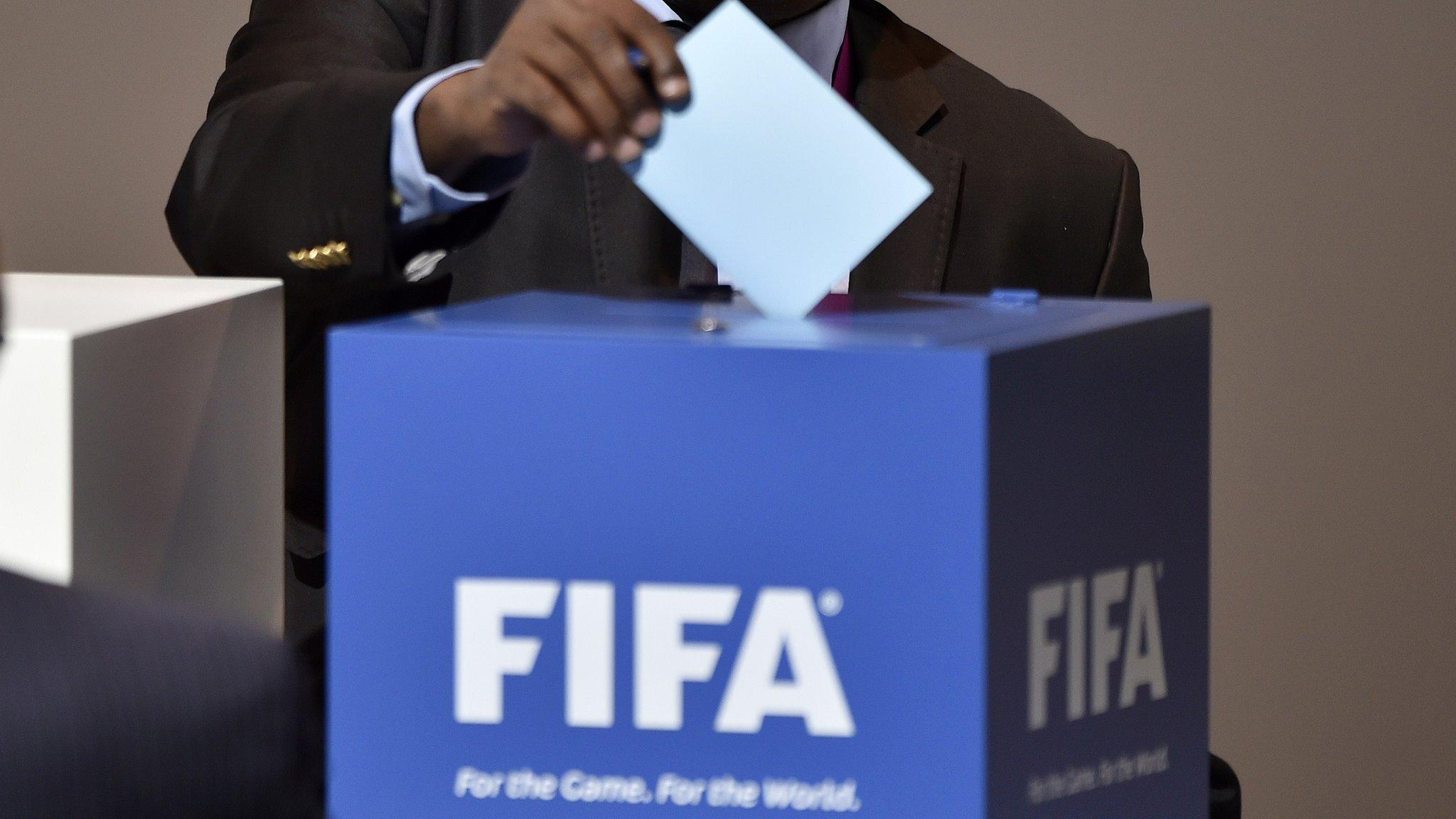
- Published24 February 2016
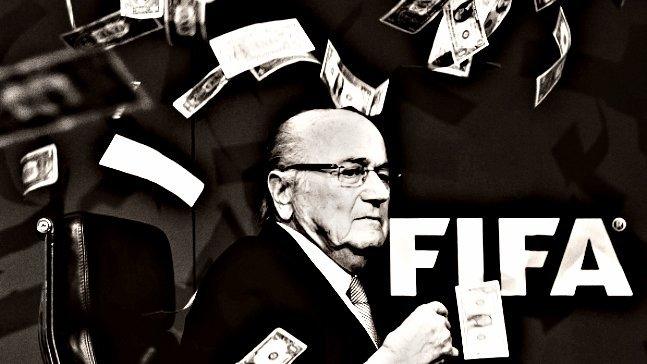
- Published25 February 2016
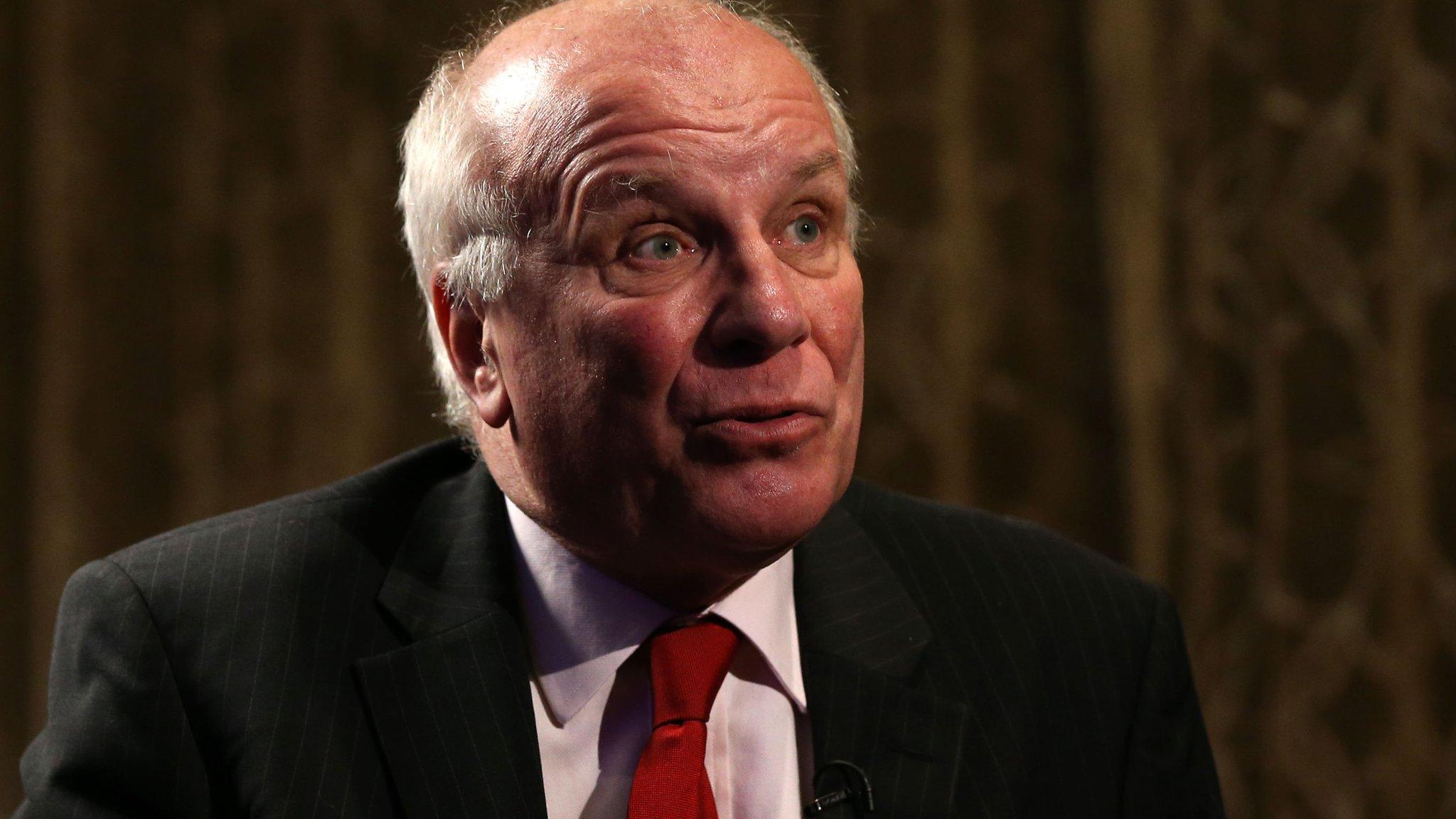
- Published20 June 2016

- Published7 June 2019

- Published2 November 2018
